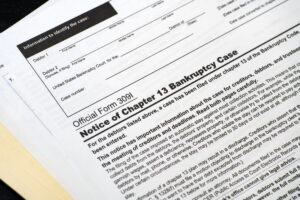If you’re thinking about filing personal bankruptcy and you’re like most of the people that hire me, one of your biggest concerns is whether you’re going to lose any of your belongings in the process. The bottom line is that most people get to keep their property. Colorado, like every other state, has laws (most of which can be found at Colorado Revised Statutes 13-54-102) in place that protect certain property from ever being taken from creditors, either in or out of the bankruptcy process. These laws, called exemption laws, allow bankruptcy filers to keep their property and help ensure they get the fresh start that the Bankruptcy Code is intended to give.
As you can imagine, however, the powers that be limited their generosity to the essentials. In Colorado, the exemption laws protect household goods, clothing, jewelry and vehicles, but only up to a certain value. For example, the vehicle exemption is for $5,000 in equity. So, if you own your car outright and it “Blue books” for less than $5,000, you’ll be able to keep it. Also, if your vehicle is worth more than you owe, $5,000 of that equity is protected.
Where debtors need to be concerned is when they own property that isn’t protected by the exemption laws. Examples of non-exempt property in Colorado include cash, season tickets, boats, and even firearms. The bankruptcy trustee can force the debtor to turnover this non-exempt property so that she can sell it and distribute the proceeds to creditors. The good news is that the debtor is given the chance to buy back this property. What that means is that instead of turning over your non-exempt item, you can negotiate a price for it and pay the trustee that amount. In some cases, the trustee will agree to monthly payments, but will usually only spread them out for a limited time.
Another option regarding non-exempt property is to convert it to exempt property before you file. Be careful, though, because certain pre-filing transfers can get you in trouble and might prevent the court from issuing a discharge.
Navigating Colorado exemption laws is just one reason to consider hiring a Denver bankruptcy attorney.


